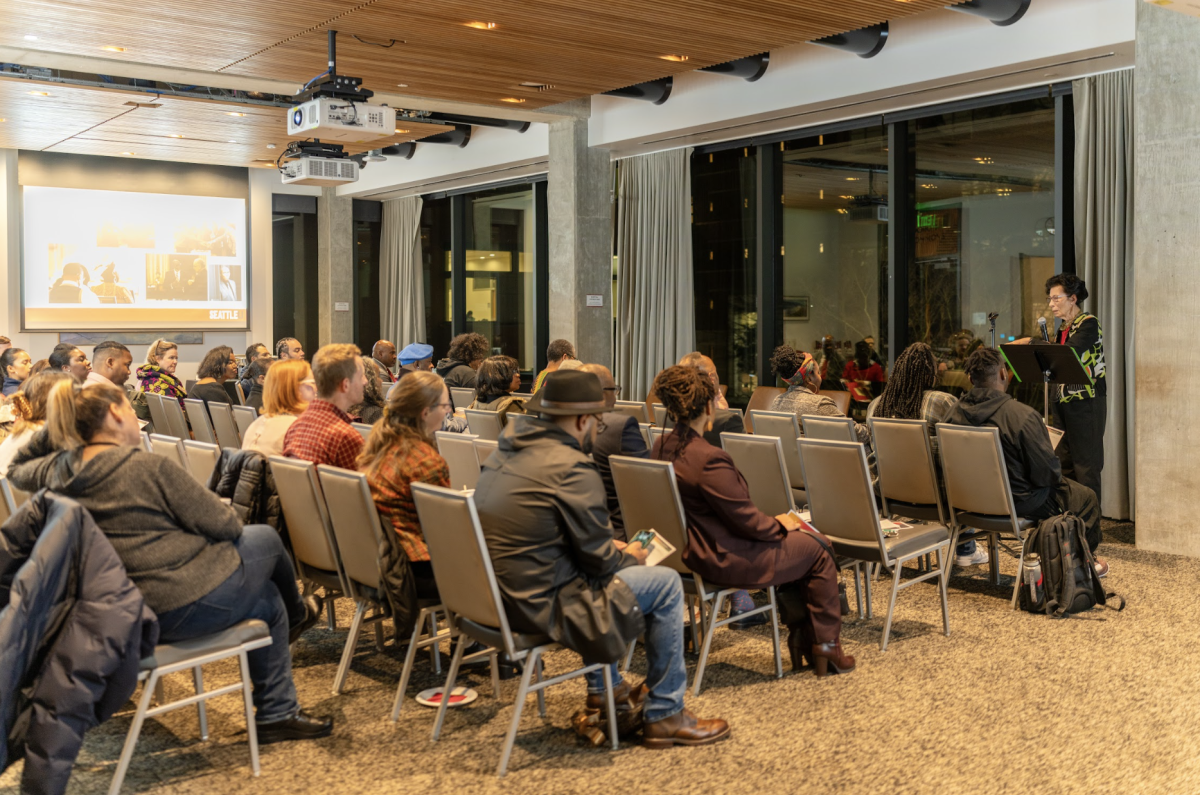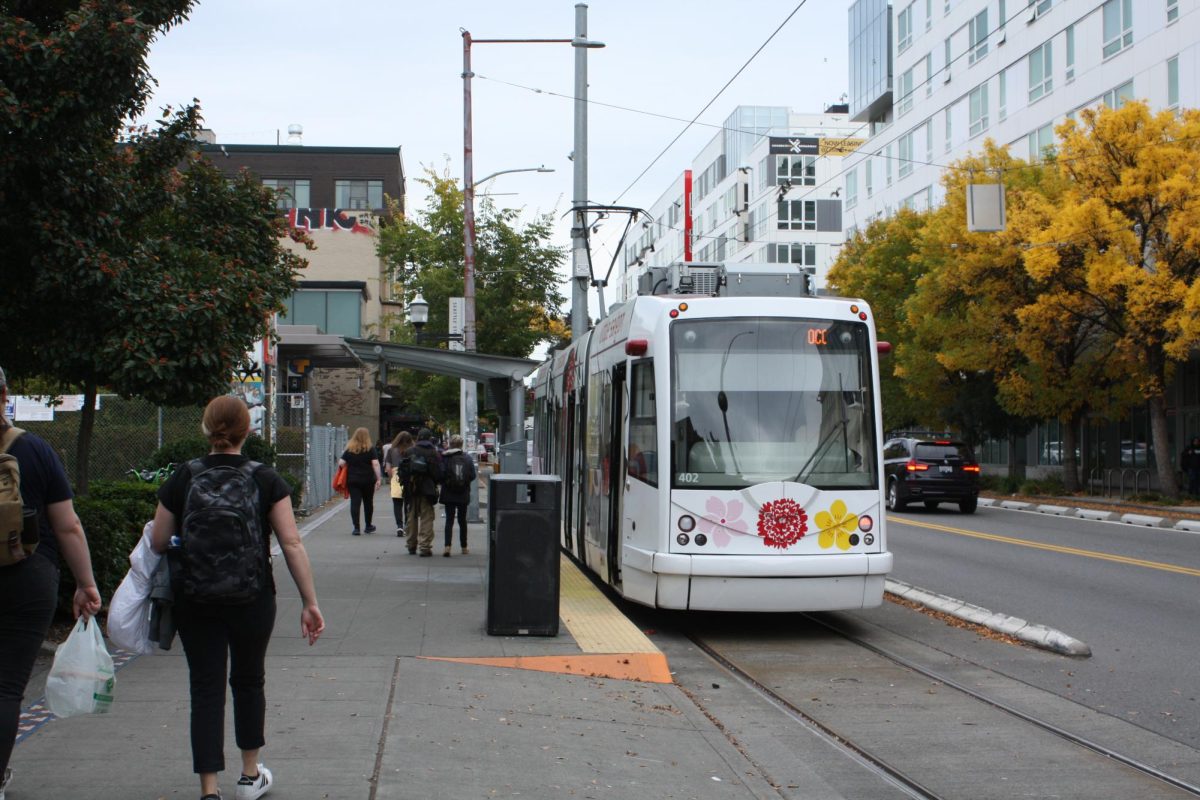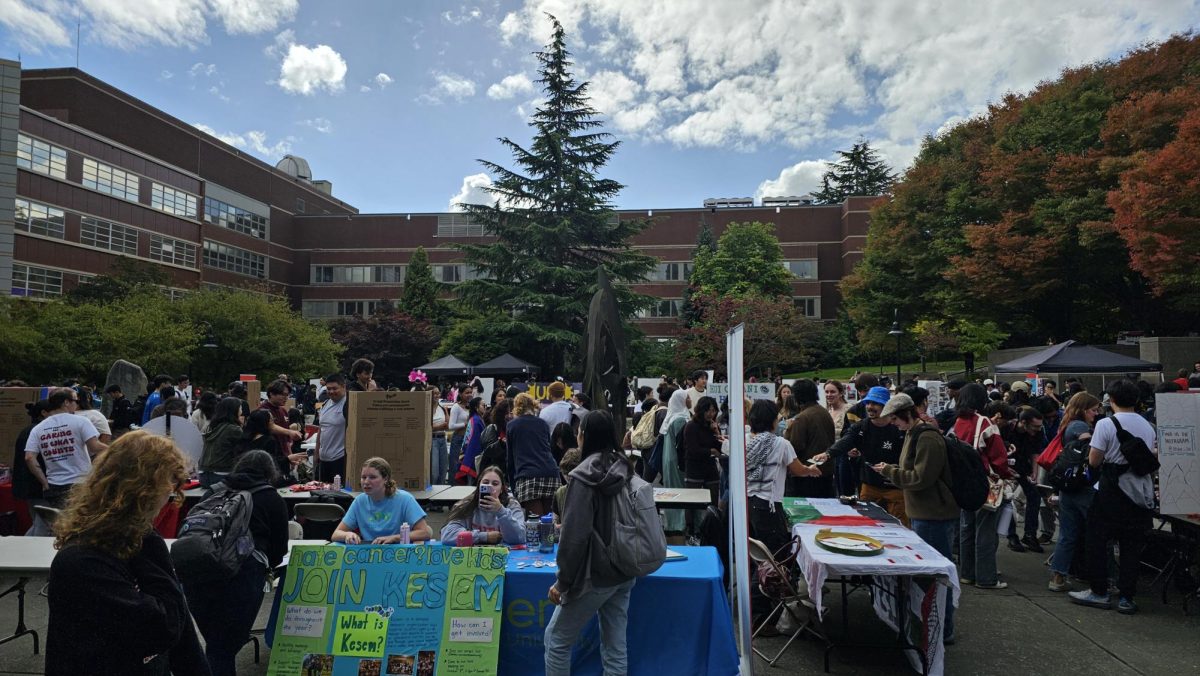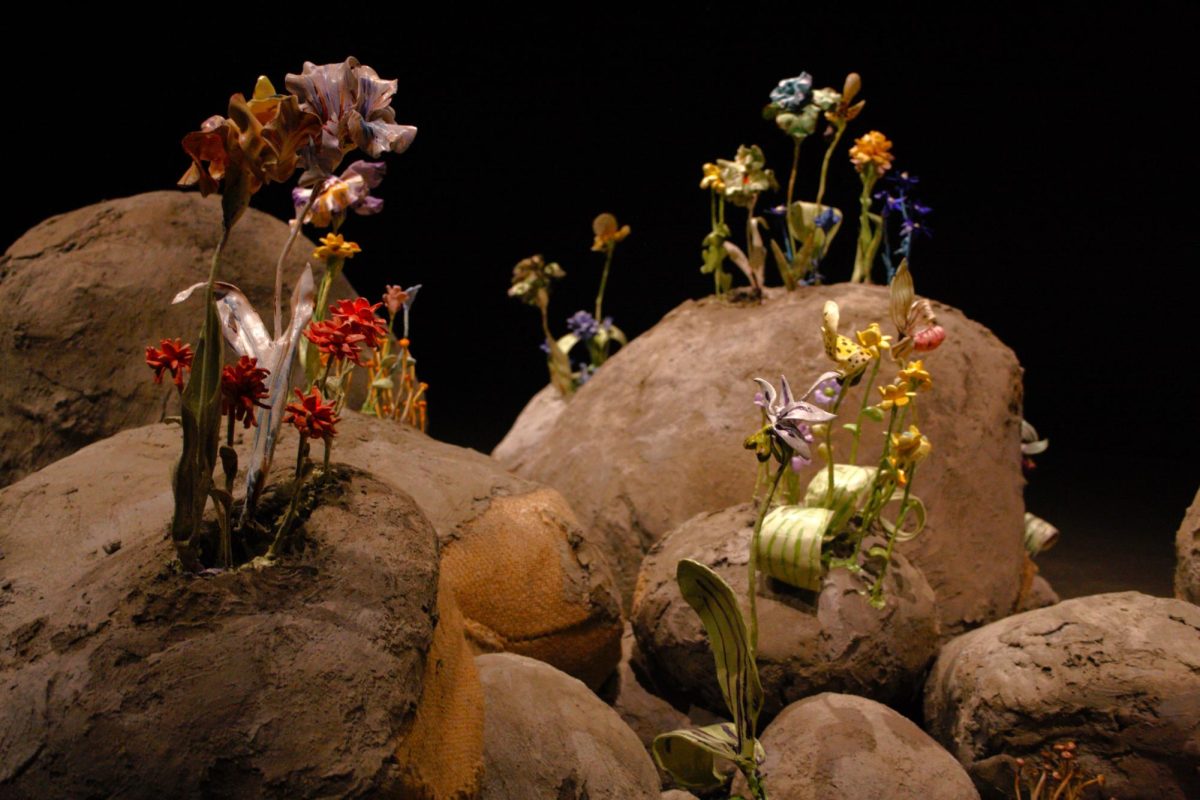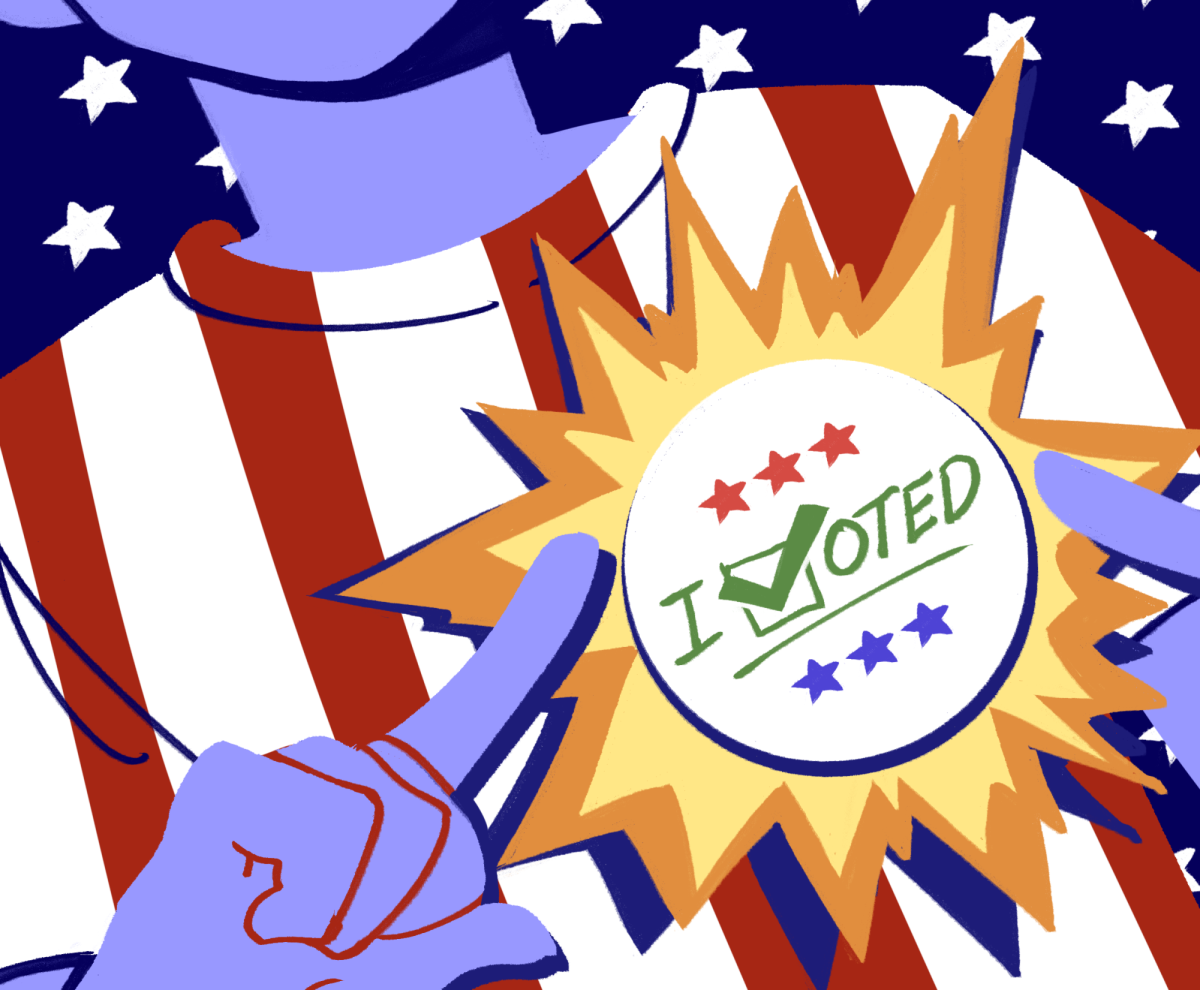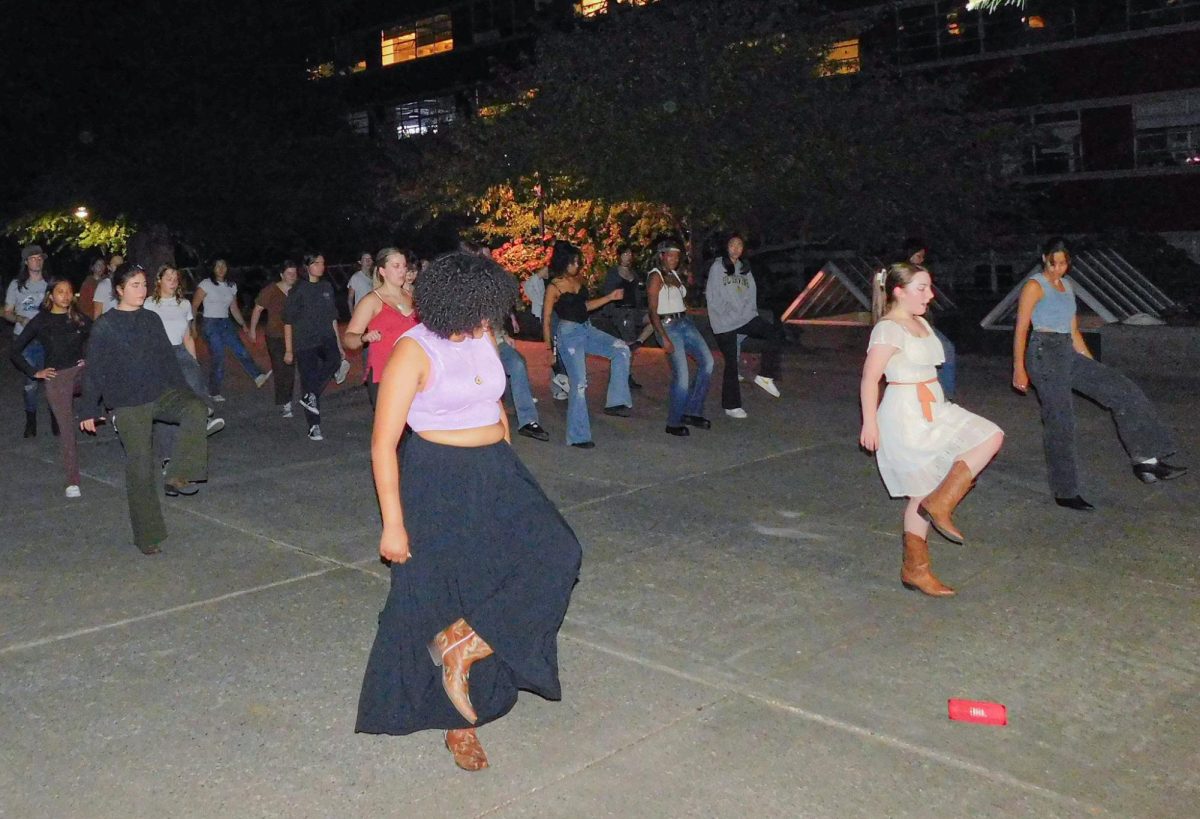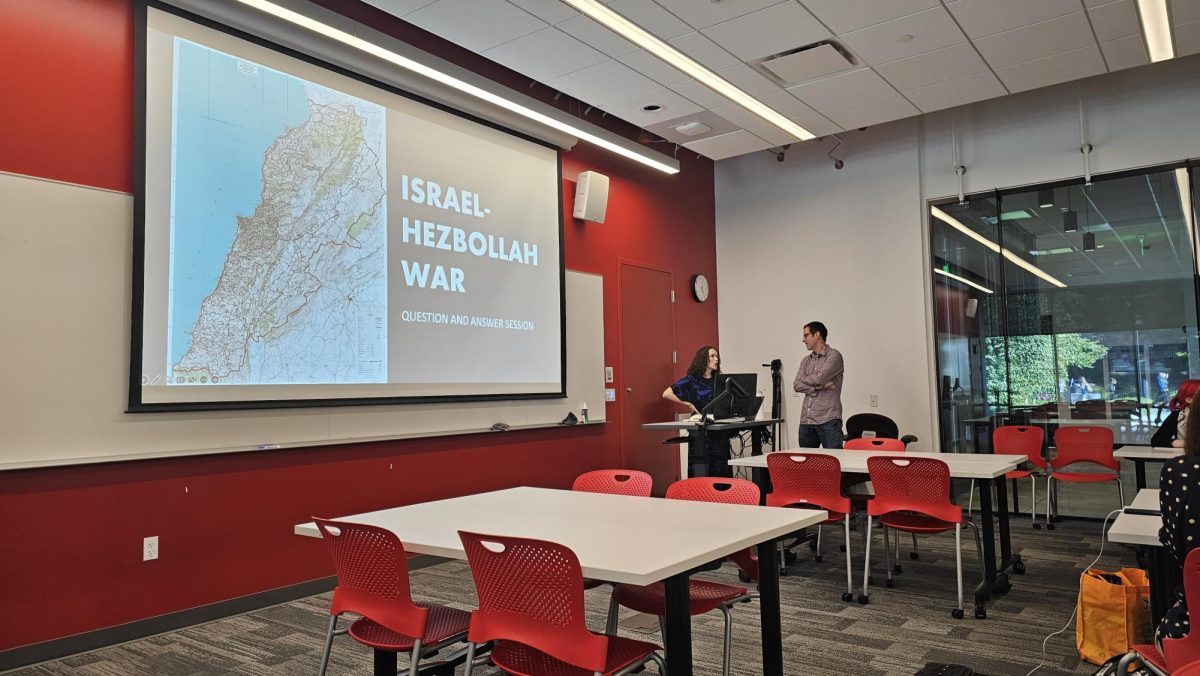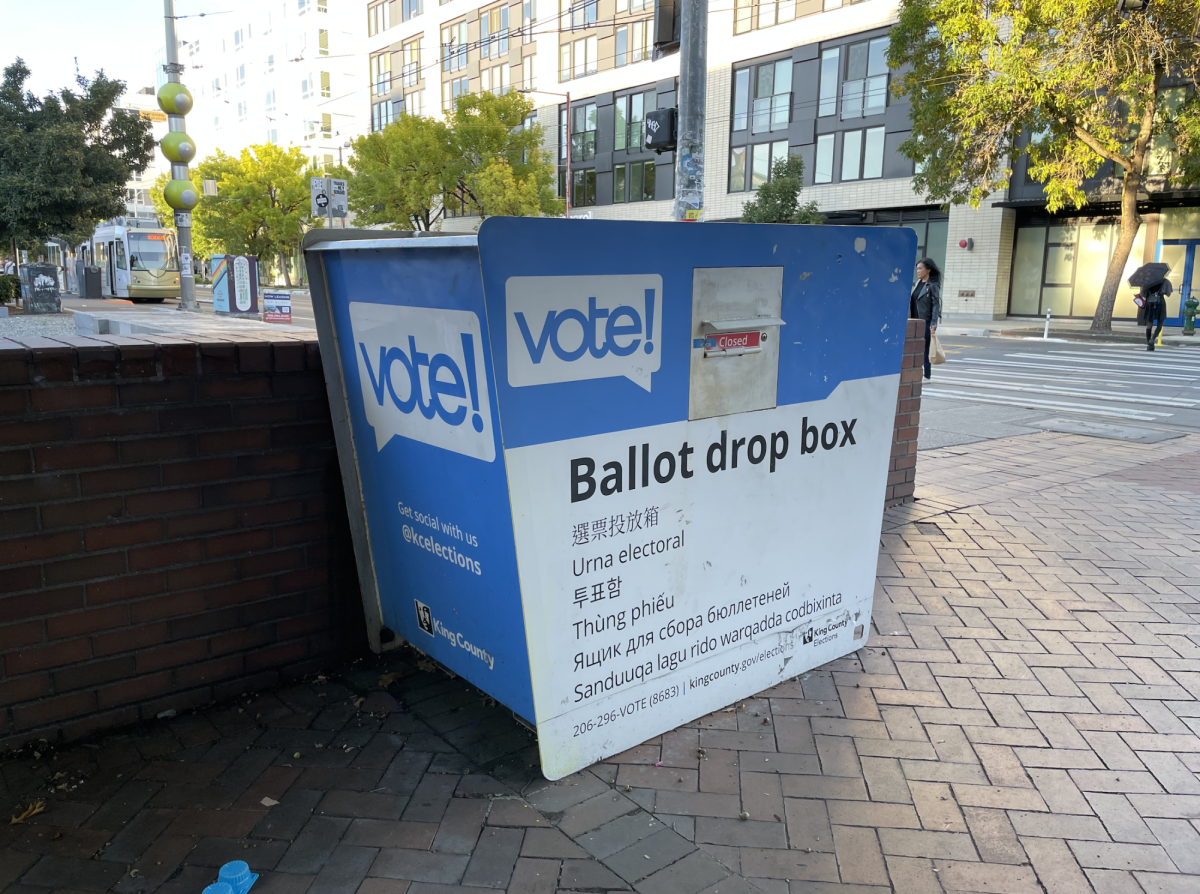“You can’t truly understand American history, even world history, without understanding Black history and Black stories,” Assistant Director of MOSAIC AshLee Day said.
As February marks Black History Month, the Seattle University African American Alumni Chapter (AAAC) hosted “African American Literature: Preserving Cultural Perspective” Feb. 15 to celebrate the historical importance of Black stories.
The program opened with a prayer from alumnus Rev. Zachary Bruce before Minnie Collins, previous director of the Office of Minority Affairs in 1989 and now of the African American Writers Alliance, reflected on the power of Black literature. Alumna and Poet Mona Lake Jones then gave a special poetry reading before Natasha Martin, vice president for diversity and inclusion, moderated the panel that was held.
Nicole Parker Donaldson, the assistant director of student and young alumni experience, was the main organizer. Though open to all of campus, Donaldson connected with the founding co-chair of the AAAC, Dr. James Gore, to ensure that alumni could have the opportunity to attend as well.
She has been largely involved in reactivating the AAAC. The chapter has existed since 1988, but many are unaware of its existence. As an alumna herself and since returning to Seattle U in 2022, she hopes that Black students will become more aware of the chapter before they graduate.
While there are several avenues of Black resilience and revolution, highlighting literature was of particular importance to Donaldson because of the recent attacks on critical race studies as well as the spike in book banning in states including TX., FL., MO., UT. and SC.
“So many different facets of our media have been under attack, and this experience was an opportunity to highlight how much richness there is in our culture and heritage… Black stories are providing a narrative that is not just fictional. It’s a capsule of time and an experience that was lived,” Donaldson said.
Day echoed this sentiment and expressed that the decisions attempting to silence Black voices are not by accident. Rather, they are strategic moves being made by politicians that are seeking to diminish the vitality of social justice movements.
“It’s a privilege to be able to read and write and to access the words of my contemporaries, as well as my ancestors. When I think about Black literature, it’s all the more important to me because I know that Black people’s words have always had power and been treated as a threat to the status quo,” Day said.
Day also assisted Donaldson in organizing the event by reaching out to those that were featured on the panel. The panelists included Dean of College of Education Cynthia Dillard, Bellevue College Sociology Professor Nicholas Russ, Alumna Essence Russ, Georgia McDade of the African American Writers Alliance and Vice Provost for Student and Campus Life Alvin Sturdivant.
When Sturdivant was asked in an interview about what his own relationship to Black literature was, he shared how oral retellings were his initial introduction to the preservation of Black stories before having exposure to authors like W.E.B. Du Bois, James Baldwin and Langston Hughes.
“We don’t typically think of oral histories as Black literature or literature in general, but they are, because they are the often long forgotten or unspoken stories of the slaves and descendants of slaves…my initial introduction was sitting at [my mother’s] feet and hearing her talk about our family and our history,” Sturdivant said.
Oral stories can come in various forms, whether that be sitting around the kitchen table with loved ones and sharing memories, or reading a poem that captures a snapshot of a lived experience. Regardless of form, Sturdivant went on to say that Black literature is a way to dismantle the barriers of inequality and discrimination while being an outlet for cultural representation.
Isiah Martin Lopez, fourth-year communications major and co-president of the Black Student Union, emphasized the importance of visibility. Stories of marginalized groups can have a meaningful impact and Lopez emphasized the need to ensure that they remain widely available in all spheres.
“When you can’t see someone that may look like you or have the same background as you in the position you’re striving for, it can be deterring or may make you feel like you don’t have the same capabilities or necessities [for success]. Always sharing [our stories] and having it accessible is key,” Lopez said.
Even though Black History Month is coming to an end, there are places both on and off-campus that continue to celebrate and hold space for Black voices. While February can be an exceptional time to highlight Black stories, that doesn’t mean that conversations need to dwindle during other times of the year, especially with the looming threat of erasure.
“Black voices are just as important and valuable in and out of February,” Lopez said.




